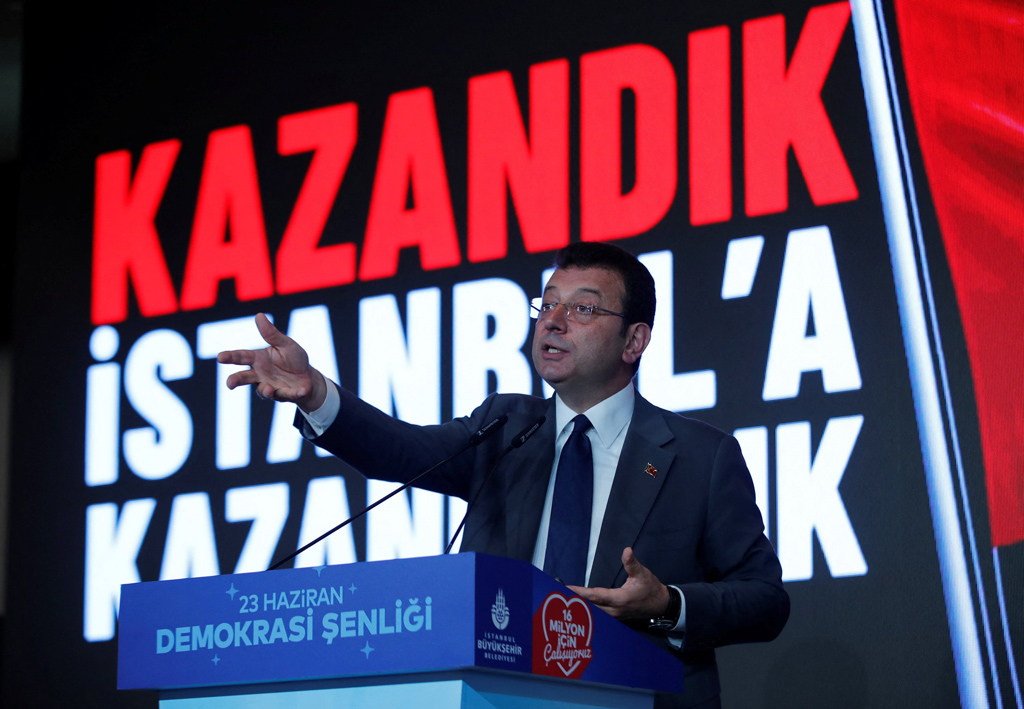Five weeks have passed since the most critical election in Türkiye’s recent political history, yet the impact of that vote remains a subject of debate.
Delivering his victory speech on election night, President Recep Tayyip Erdoğan told his supporters that winning back Istanbul and Ankara in the March 2024
municipal elections was their next target. Having formed a new Cabinet, he has mobilized the ruling Justice and Development Party (AK Party) for that purpose. Specifically, Erdoğan’s movement seeks a milestone victory akin to the 1994 municipal elections.
The opposition parties, in contrast, haven’t yet recovered from their crushing defeat. The Republican People’s Party (CHP), the Good Party (IP) and the pro-PKK Peoples’ Democratic Party/Green Left Party (HDP/YSP) attempt to take stock, grapple with change, hold intra-party elections and contemplate an alliance for the next year’s municipal elections without hurting themselves or their potential allies.
It is possible to argue that the intra-opposition reckoning is considering the fast-approaching municipal elections. Despite
greater fragmentation, hardly any opposition figure has made the kind of accusation that would prevent future collaboration. The CHP is witnessing a debate over leadership change as IP Chairperson Meral Akşener says she regrets asking the CHP for 15 parliamentarians years ago. Whereas the HDP announced that it was going to contest mayoral races across the country, Democracy and Progress Party (DEVA) Chair Ali Babacan declared his 15 parliamentary seats as “halal,” and the Felicity Party (SP) claimed that several fringe parties, whose candidates ran on the CHP ticket, had contributed 7% or 8% to the opposition bloc.
HDP, IP may eye better deal
Yet none of those remarks mean that the opposition parties won’t come together in March 2024. It is highly likely that the HDP and the IP merely seek a better deal. That is exactly why warning the AK Party against the temptation not to take the municipal elections seriously makes perfect sense. Indeed, Kemal Kılıçdaroğlu, the opposition’s presidential candidate, outperformed Erdoğan in Istanbul and Ankara – a sign that the AK Party won’t win back those municipalities without working hard. That is why the AK Party has been studying each electoral district individually.
The political agenda remains full because the 2023 parliamentary and presidential elections have effectively been linked to the 2024 municipal elections. Both the governing party and the opposition have been acting accordingly. Specifically, the AK Party prepares for next year’s municipal elections by building on the momentum of its success in the May 2023 elections. That is why it treats May 2023 and March 2024 as parts of the same continuum.
The opposition does the same thing – whether deliberately or out of helplessness. Accordingly, they discuss replacing and preserving their current leaders and platforms concerning the potential loss of next year’s municipal elections. Hence their inability to take stock properly or develop a common vision. Nor have they been able to craft a discourse that won’t alienate their former partners. All in all, the opposition parties find themselves in a state of flux.
Synergy problem
The ongoing discussion within the main opposition CHP over
potential changes to the party leadership, policy set and ideology is not geared toward promoting
synergy and a common vision. Those tensions will presumably last until October, encouraging the Nation Alliance’s members (and the HDP) to approach the CHP with additional demands. After all, the main opposition party will be expected to make certain sacrifices in March 2024 – partly due to its most recent loss. Specifically, the CHP leadership will be compelled to offer some municipalities it currently controls to other opposition parties in negotiations – just as it handed over 39 parliamentary seats to right-wing fringe parties in May 2023. Such sacrifices are bound to weaken Kılıçdaroğlu or his successor as CHP chairperson.
If the opposition parties fail to join forces in May 2023, however, next year’s municipal elections might mark a turning point akin to the 1994 elections. Even if they ally, the People’s Alliance could flip some of the municipalities that the opposition currently controls. The bottom line is that linking the May 2023 and March 2024 elections plays into the governing party’s hands and hurts the opposition. Yet the opposition repeats the mistake of the “joint presidential candidate” debate vis-a-vis taking stock, promoting change, holding intraparty elections and focusing on next year’s municipal elections. Judging by their past experiences, it is quite clear that the current situation won’t produce synergy, a common vision or influential figures.
[Daily Sabah, July 5, 2023]








